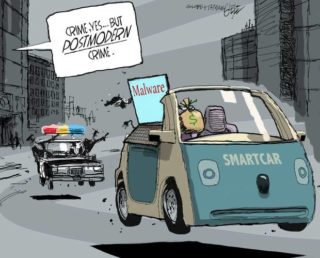Following US Attorney General William Barr’s summary of the Mueller report on his investigation into Russian interference in the last US election, Adrian Morrow and Tamsin McMahon highlight possibly illegal activities by President Trump that were not included in Mr. Barr’s four-page letter to Congress and the press several weeks ago.
Appropriate Subject Area(s):
Social studies, current events
Key Question(s) to Explore:
- What is the Mueller report? What kinds of potentially illegal activities does it reveal?
New Terminology:
Redacted, tome, collusion, obstruction, memes, intermediary, recuse/unrecuse, exonerate, trolls
Materials Needed:
Globe article
Introduction to lesson and task:
Special counsel Robert Mueller was tasked with investigating possible Russian interference in the 2016 US election, as well as possible collusion between Donald Trump and/or his campaign personnel and the Russians. During the two-year investigation, Mr. Trump visibly and vocally criticized it, calling it a “witch hunt.” However, in the course of his investigation, Mr. Mueller uncovered criminal activity by members of Mr. Trump’s personal staff and his administration. To date, more than three dozen individuals have been indicted and several sentenced and jailed, including Mr. Trump’s former campaign manager, Paul Manafort, and Mr. Trump’s personal attorney, Michael Cohen.
After two years of work, Mr. Mueller delivered his report to new Attorney General William Barr, who released a four-page summary to the public several days later. When the full report was released several weeks later, discrepancies between Mr. Barr’s version and the original report appeared. Mr. Barr emphasized that neither the president nor his staff actively colluded with the Russians, and that the president’s actions did not rise to the level of criminal obstruction of justice. The report, however, details many instances where Mr. Trump’s team actively encouraged Russian involvement, and concludes that the Russians did indeed work to have Mr. Trump elected. As well, the report lists numerous examples of Mr. Trump’s activities that could constitute obstruction, but the report produced no conclusion on this issue, leaving that decision to the Attorney General and, eventually, for Congress to pursue.
Note that it has now generated a constitutional crisis in the United States, as the Executive Branch, under Mr. Trump, and an opposition Democrat-controlled Congress are at odds with each other. Congress has the power of oversight over the Executive Branch, but Congress’s authority is being challenged by Mr. Trump. In US politics, this is a highly charged situation, not seen since the Watergate scandal that saw Richard Nixon resign the presidency in 1974.
This lesson will familiarize students with the key players and events surrounding the issue. Students will work in groups to discuss the attached article and to form their own opinions on the merits and outcomes of the Mueller report.
Action (lesson plan and task):
Begin with a discussion of the recent release of the Mueller report to determine what students may already know. Ask who has followed the investigation, or not, and what they think it’s about.
- Have volunteers read the relatively short column by Adrian Morrow and Tamsin
- McMahon aloud to class, and answer questions as they arise. Have them define the words
- in the new terminology section, above, to help them understand the article.
Provide them with the following task sheet, noting that each group is to produce an oral report at the end of the exercise.
Task Sheet
- Relative to Mr. Mueller’s investigation, Mr. Trump has repeatedly said there was “no collusion,” and “no obstruction.” What evidence in this article suggests that there was some collusion and possible obstruction of justice? Explain.
- Why do you think the Russians preferred to see Mr. Trump elected? What does it appear they hoped the Trump administration would do for them after the election?
- What was the role of Wikileaks in this affair? Who was the target of this strategy and why?
- List some actions of the president that indicate he was attempting to obstruct the investigation—a crime called “obstruction of justice.”
- What is the significance of the statement that Mr. Mueller does not believe it is a good idea to indict a sitting president? How might this have affected the way Mr. Mueller reported on the obstruction issue?
- Finally, what do you think? What does your group conclude about the following:
- Did Mr. Trump act in such a manner that he deserves to be further investigated?
- If he were not president, could Mr. Trump have been charged with obstruction of justice?
- Do you think it’s sufficient for a president to claim victory simply because he has not ben arrested?
- Overall, what is your opinion of Mr. Trump’s demeanor as president?
Be prepared to report to class.
Consolidation of Learning:
- Students discuss their reports in class.
Success Criteria:
- Students can answer, in general terms, what the Mueller report is about and why it is significant.
Confirming Activity:
- Ask students to report when they notice news items on the Mueller report and Congress’s actions regarding it.

